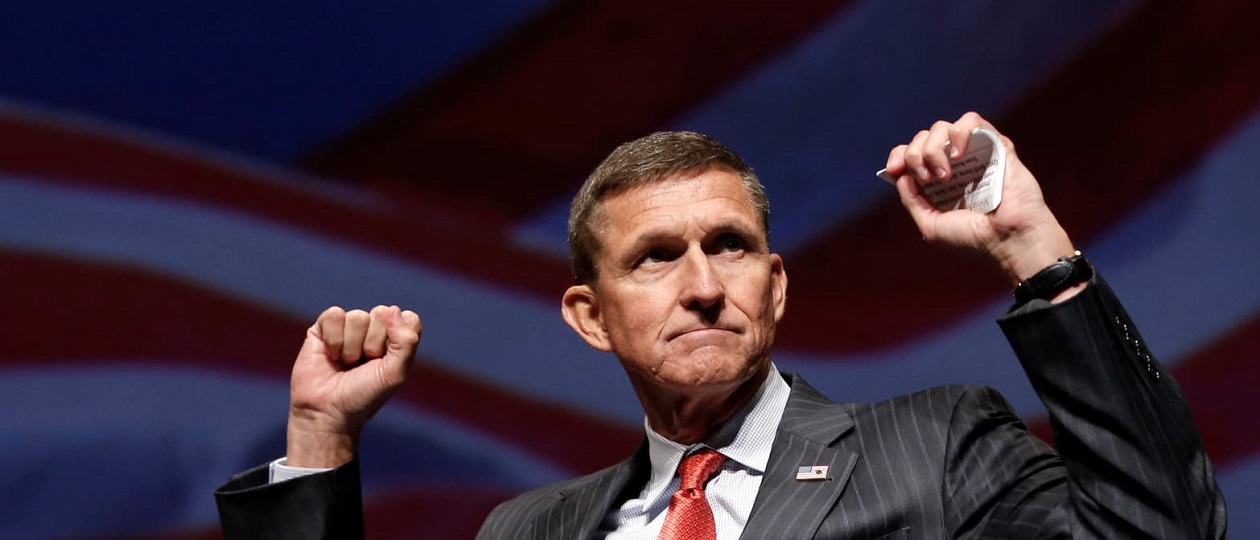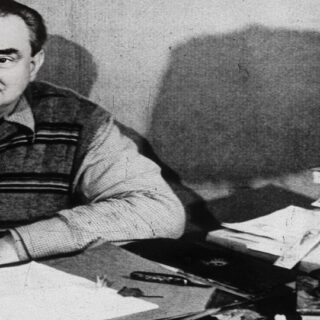
Among other things, the case of Gen. Michael Flynn reminds us of the old adage that things are always worse than you think.
Right from the beginning of the attempted coup some of us took to calling ‘the Russian Collusion Delusion’, it was clear that the hounding of President Trump and various aides and supporters was shaping up to be the greatest scandal in American political history. In September 2018, I wrote that it had become ‘abundantly clear that [both Flynn and George Papadopoulos] both were set up by the FBI as part of a deliberate attempt to delegitimize Trump’s presidency’.
I didn’t know the half of it. Yes, we knew that Flynn had been bankrupted and pressured to plead guilty to a bogus charge of lying to the FBI. It had been widely rumored that he did so because the FBI had threatened his son, also called Michael Flynn, with another bogus charge.
What we did not know, but what the heroic efforts of Flynn’s new lawyer Sidney Powell has made clear is that the prosecutors (or perhaps I should say ‘persecutors’) had withheld exculpatory evidence from the Judge and that there had never been any reason for the FBI to interview Flynn in the first place. As Andrew McCarthy pointed out in a column for The Hill, ‘Under federal law, a false statement made to investigators is actionable only if it is material to the matter under investigation. If there was no basis to believe Flynn had committed a crime, his counsel could have argued that any false statements allegedly made by Flynn when he was questioned in January 2017 were immaterial.’
By early January, the FBI had concluded that there was no case against Flynn. It was planning to close the case when at the last minute Peter Strzok, disgraced former head of counter-intelligence at the Bureau, intervened personally to keep the case open. “Seventh floor involved,” he said, i.e., the floor of big boss James Comey.
Why, if the FBI had concluded that Flynn was not guilty of collusion with the Russian, were two agents sent to lure him into a perjury trap? Simple. Let the disgraced former director of the FBI explain: “I sent them,” he smirked to an interviewer, much to the delight of her anti-Trump audience, who had a good laugh over that. It was, he admitted, ‘something we, I probably wouldn’t have done or gotten away with in a more organized investigation — a more organized administration.’ Gotten away with, you understand. “What is our goal?,” a recently released handwritten note from a top agent about the Flynn interview reads, ‘Truth/Admission, or to get him to lie, so we can prosecute him or get him fired?’ The FBI motto, incidentally, is “Fidelity, Bravery, Integrity”. How’s that working out?
Andrew McCarthy got to the nub of the issue when he told Martha MacCallum that “What we are seeing is a meticulously planned-out scheme to try to get a 33-year combat veteran of the United States to say something that was inaccurate so that they would have a basis to try to charge him with false statements or otherwise get him fired.” Wow.
Kim Strassel, in a blistering piece inthe Wall Street Journal, noted that ‘the FBI exists to investigate crimes, not to create them’. But the FBI in the Obama administration regularly created or committed crimes. They spied on Americans without proper authorization. They unmasked the identities of Americans when the law expressly forbade that. They knowingly relied on Russian disinformation in an effort to frame the President of the United States. They brought the awesome police power of the state to bear on innocent people, destroying the reputations and livelihoods. The recent revelations about its effort to destroy Michael Flynn underscore the pertinence of a recent tweet from Nikki Haley, the President’s former Ambassador to the United Nations. ‘Letting Gen. Flynn off is not enough. People need to pay for this and the FBI needs to answer to how the public can have confidence that it will never happen again. Shameful.’ Amen to that.





